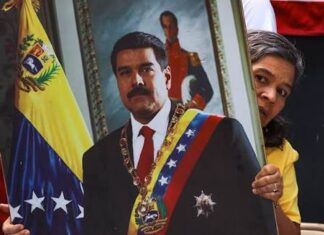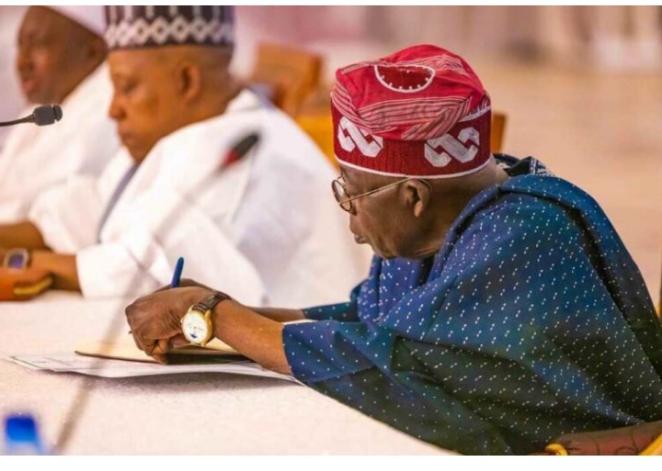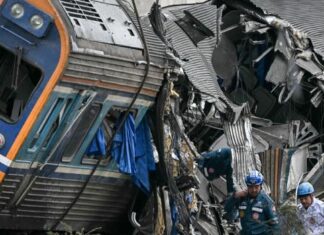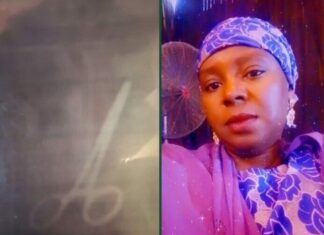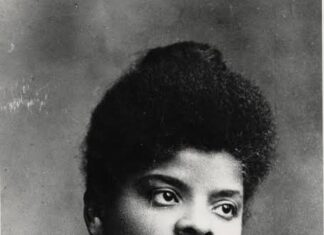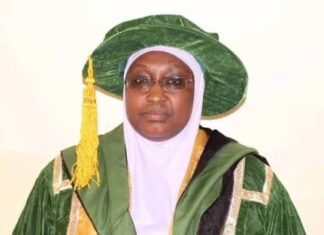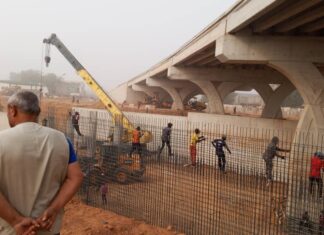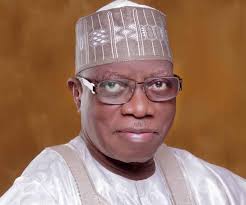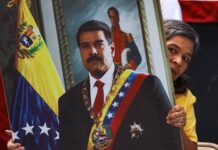From Mohammed Ismail, Abuja
The ruling All Progressives Congress is currently passing through a litmus test that may make or mar its comeback at the center and across many states come 2019 general elections.
As things stand, the chances of the party retaining power look slim unless something is done by President Muhammadu Buhari to stem the ineluctable drift. The party, just like its predecessor may be heading towards an irreversible perdition as history sets to repeat itself in 2019.
APC rode to power on the crest of an unprecedented goodwill that saw its emergence at the centre and across many states following a rainbow coalition between major opposition parties that gave birth to the All Progressives Congress. In order to facilitate its chances in the epic 2015 election, the party made juicy promises to Nigerians if elected through its widely hyped change mantra; but almost at the expiration of its first tenure, most Nigerians are only gnashing their teeth in anger and penury as their fortunes only dwindled during the APC era.
Many Nigerians, especially the plebeian population, thought that the coming of the Buhari led administration will mark a period of happiness, joy and prosperity having ushered in “a man with a no-nonsense demeanour, an impeccable record of service and zero tolerance for corruption”.
But no sooner than the president bestrode the seat of power that it became apparent that Nigeria needs more than a person with integrity to address its surfeit challenges.
The major development that tested Buhari’s leadership acumen began immediately after the government was inaugurated following the sharp disagreement and discontent that followed the election of the NASS leadership which produced Bukola Saraki and Yakubu Dogara as senate president and speaker of the House of Representatives respectively.
The election of the duo has sparked a considerable disquiet in the ruling party as it was not in tune with the party leaders’ wish leading president Buhari to spite Saraki and Dogara for their intransigence and audacity to go against the zoning provisions of the party.
The development led to a frosty relationship that made the presidency and the NASS to operate at different frequencies culminating in the total severance of working relationship between the two arms of government for close to six months.
What compounded the political imbroglio in the party was the failure of Buhari to wade into the crisis and ensure the prevalence of sanity as he said the issue at hand was strictly a party affair.
But later on, the body language of the president betrayed his widely acclaimed position on the crisis as the executive arm through its agencies began what many believed was the persecution of the senate president based on his perceived impudence and recalcitrant posture by reviving a CCT case that was in the coolers for close to a decade.
The belligerent posture of the president was extended to other members of the APC who despite their high stakes and innumerable contributions towards the success of the party in 2015 were duly sidelined in the scheme of governance and party affairs instead of whom the president brought in personalities that were at most seen to be non committal or even opposed his 2015 presidential ambition.
The development led to unprecedented anger within the ranks of the APC chieftains who decided to nurse their grievances in silence as any dissension against Buhari who enjoyed a cult like follower-ship will be archetypal to apostasy. With this mindset, Buhari was able to subdue all the aggrieved APC chieftains as at then.
Teeming Nigerians who expected good governance that will lead to the betterment of their lot were similarly not spared from the haughtiness of the Buhari led administration which earned a reputation of procrastination towards the myriad of existential challenges being faced by ordinary Nigerians including rising spate of insecurity, spiraling inflation and unfathomable poverty.
As if that was not enough, the government vehemently refused to inaugurate boards of parastatals which would have created opportunities for the teeming APC stalwarts and their cronies in the government.
Buhari led government continued to trudge on despite the enumerated and burgeoning inadequacies till the present day. But with the expression of interest to contest another round of election, Buhari found himself swimming against the tide as his quest to stage a comeback was roundly rejected by the elites as well as Nigeria’s teeming populace who were at the short end of the bargain.
The first major salvo against the Buhari government was fired by the dour and controversial ex-president Olusegun Obasanjo who in his famous disquisition to Buhari advised the president against seeking reelection due to his poor performance, corruption, clannishness, poverty and rising insecurity hence calling on Nigerians to form a coalition to oust Buhari come 2019 should he seek reelection.
In what looked like a conspiracy, IBB who is known for his taciturnity and calmness in a surprising twist also fired a salvo against Buhari advising him to leave the space for a younger and vibrant generation. In the same vein, General TY Danjuma who was also known for his reticent demeanour gave Buhari a red card for the failure to secure ethnic nationalities asking them to defend themselves in the face of the government’s lackluster attitude.
Other prominent Nigerians who took queue from these ex generals also charged the president to protect his earned name by not seeking reelection in the face of the rising opposition against his administration.
The clamour by these Nigerian leaders set the tone for trenchant opposition against Buhari from within as party leaders who felt shortchanged by his government not only began to express their grievances but launched a subterranean ploy to oust him from power.
Even before then former vice president Atiku Abubakar has defected to the opposition PDP following what he described as his deliberate marginalization in the scheme of party affairs by the “ungrateful” Buhari government despite his contributions in cash and kind to the success of the Buhari campaign train in 2015.
The tension in the party was exacerbated following the conduct of party congresses that led to the formation of parallel excos across many APC states which snowballed into a splinter group that christened itself the reformed APC (rAPC) at the center.
The formation of the rAPC follows the consistent failure of Buhari to listen to the cries of the Baraje led nPDP block of the party which said it was deliberately sidelined in the scheme of affairs by the Buhari led administration.
As tension in the party rages, the newly elected national chairman of the party, Adams Oshiomole called the bluff of the rAPC saying the group is inconsequential and cannot cause any harm to the party. In a similar vein, the president in his characteristic haughtiness insisted he would not meet with the rebellious group in the first instance making the fracas to degenerate beyond redemption.
But as it turned out, both president Buhari and Oshiomhole seemingly capitulated and visited the homes of Kwankwaso and the chairman of the rAPC respectively in the dead of the night in order to woe them back.
A meeting between Buhari and the leadership of the NASS at the behest of the former was also convened which instead of proffering solutions to the political logjam only produced phantom insinuations.
But just a day to the defection of some members of the NASS to PDP, Nigerians woke up to an epic political melodrama after the police sent the senate president an impromptu invitation to answer questions in relation to Offa bank robbery ostensibly to prevent Saraki from superintending the senate session the following day.
But sensing an ulterior motive behind the impromptu invitation, the wily senator left his house through the backdoor and headed for the senate chambers where he spent the night.
In the morning of the July 24, 2018, the houses of the senate president and his deputy were all blocked by a retinue of policemen with the hope of preventing the two leaders from accessing the NASS so as to stymie the proposed defection of some members of the National Assembly.
In what many political observers believed was the beginning of a political tsunami, 14 senators and 37 members of the House of Representatives left the APC to other political platforms in one fell swoop.
With the prevailing uncertainty and unease calm bestriding the APC, political bookmakers were of the opinion that the decent of APC into political oblivion in the 2019 general election is obvious unless the president descended from his high horse to address the nagging issues bedeviling his party.
Follow the Neptune Prime channel on WhatsApp:
Do you have breaking news, interview request, opinion, suggestion, or want your event covered? Email us at neptuneprime2233@gmail.com

